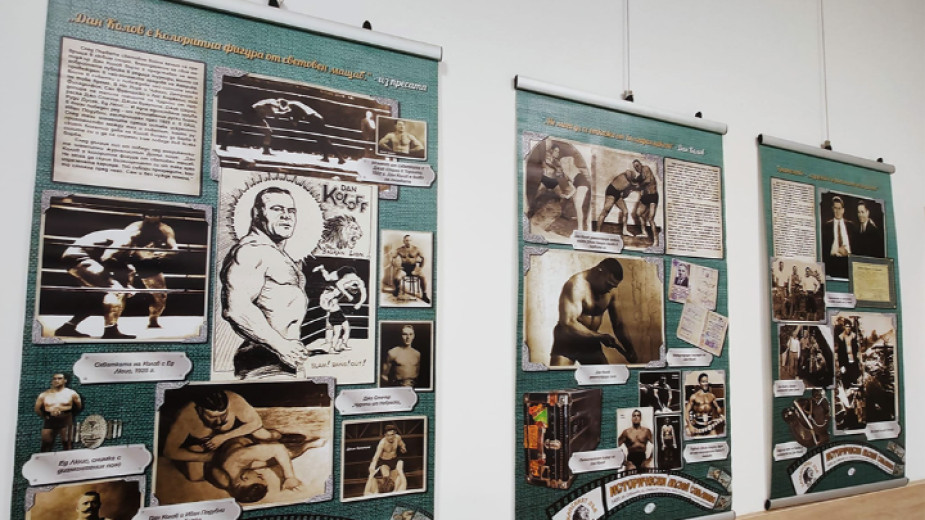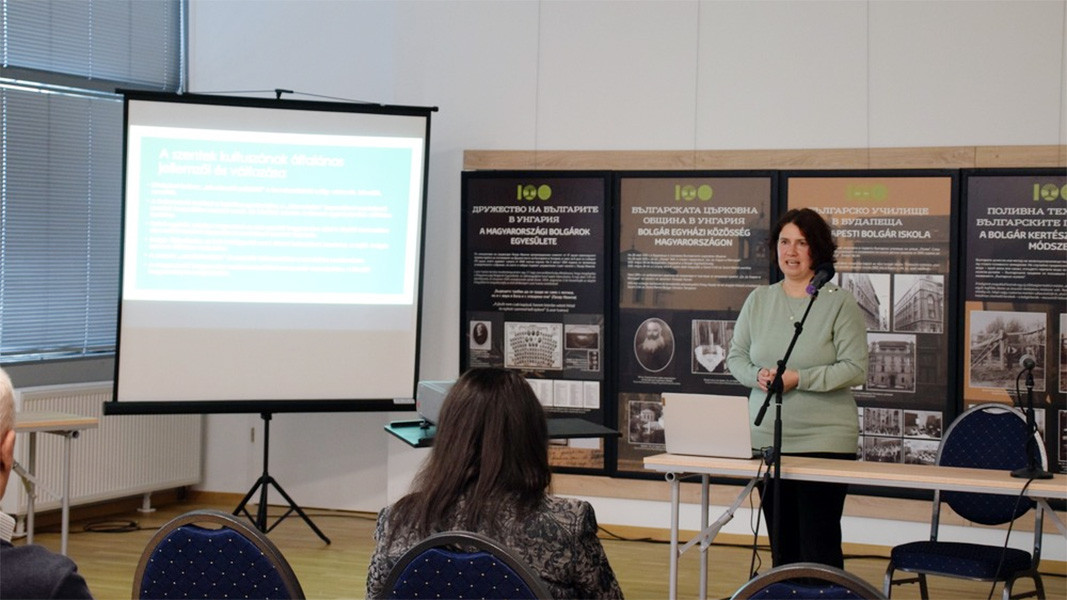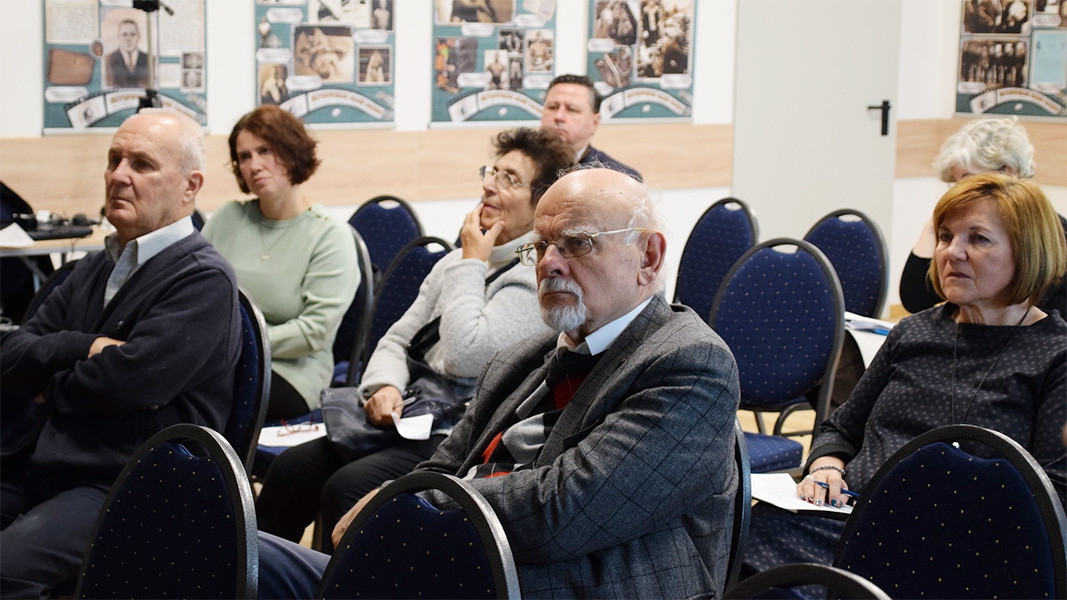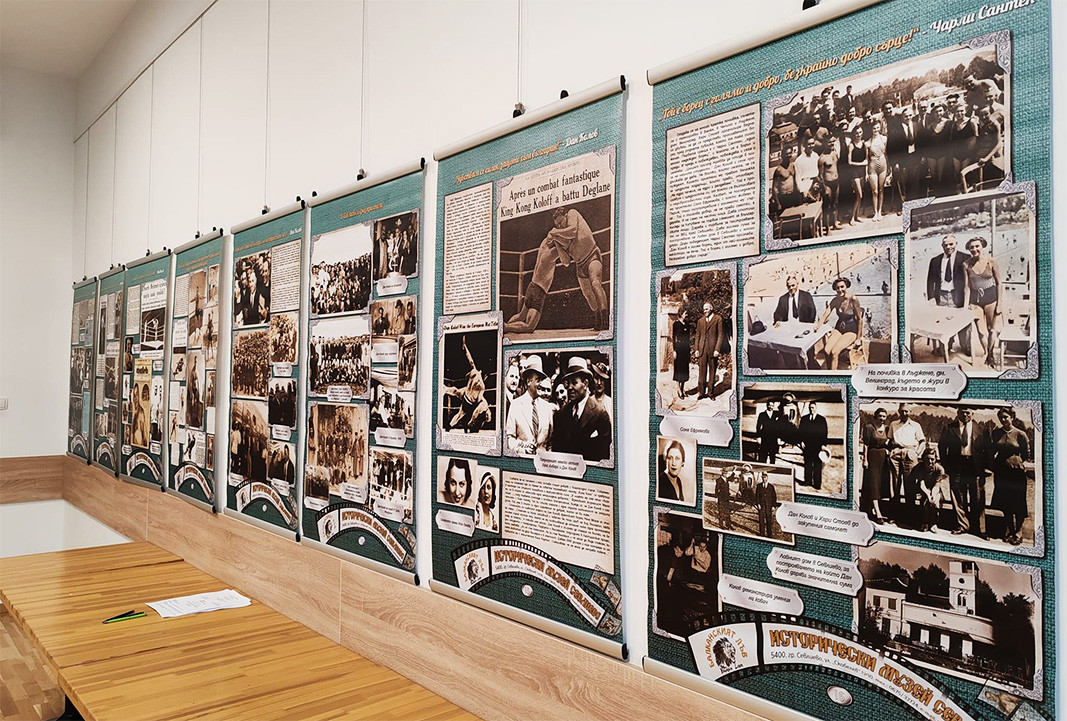 6
6
Few people know that the legendary Bulgarian wrestler Dan Koloff, before his world title, started out in Hungary. Before leaving for the US in 1909, the future champion worked, since the age of 13 and for 4 whole years, in an orchard in Budapest. The orchard belonged to a Bulgarian from the small town of Lyaskovets, said Iveta Milenova in her report at the second conference on the project “Following in the footsteps of Bulgaria’s gardeners”, which took place in Budapest. The event was organized by the Research Institute of Bulgarians in Hungary, Svetla Kyoseva, translator of Hungarian literature, lecturer in Budapest and editor-in-chief of the Bulgarian-Hungarian magazine for culture and social affairs Hemus said for the Bulgarian news agency BTA.
Dr. Krisztina Menyhart acquainted the audience with the way saints are honoured – from the traditional beliefs to the modern policies for preserving their memory. The emigrants brought with them the cult of St. Marina and St. Elijah, patron saints of the villages Polikraishte and Draganovo, where most of the gardeners came from, as well as of St. Trifon, a saint celebrated by vine-growers, but also by gardeners.
The Bulgarian immigrants in Hungary also revived the celebration of St. Ivan (John) of Rila. To this day, the commemoration of St. Ivan of Rila is celebrated as a day of Bulgarian-Hungarian friendship.
The researcher also spoke about metropolitan Boris of Nevrokop, for whom a procedure for canonization has been initiated. More than a century ago, the cleric laid the foundations of the church community and the Bulgarian school in Budapest. A monument to metropolitan Boris of Nevrokop was erected recently in the yard of the Bulgarian Orthodox church Saints Cyril and Methodius, Svetla Kyoseva says. 
The report by Dr. Ferenc Bodi also evoked keen interest. In his research of the Hungarian National Agrarian Party, founded in the 1930s, he found references to Bulgarian gardening, which was made a thorough study of by a number of Hungarian agrarian experts. According to Dr. Bodi, if the production model of the Bulgarian gardeners had been introduced in Hungary, the fate of Hungarian villages would have been very different.
Vegetable production by intensive irrigation, based on division of labour, is an exceedingly successful model of modern cooperation which the gardeners from Bulgaria introduced in Hungarian society, the researcher said. 
At the conference in Budapest, Dr. Janos Nadgal presented his current agricultural enterprise as heir to the Bulgarian tradition of farming and innovation, thanks to which the one-time cooperative farm Europe developed into one of the most powerful agricultural concerns in Hungary, but also in the world. It was at their initiative that on 6 September, 2020, a monument to the Bulgarian gardener was erected in the town of Szentes. To a great extent what the politicians from the Agrarian Party failed to introduce throughout Hungary, for a number of political reasons, the Bulgarian emigrants were able to achieve. The Hungarian Nobel prize laureate Albert Szent-Gyorgyi, the man who discovered vitamin C, actually isolated it from the peppers grown in Szentes, a crop introduced by the gardeners from Bulgaria, Dr. Nadgal said. There were just four Bulgarian families living in Szentes and the surrounding area, they have been assimilated a long time ago, yet their legacy has proved durable because there were people to preserve it and pass it down the generations.
Svetla Kyoseva also spoke about the steps that need to be taken to put Bulgarian gardening on the UNESCO intangible heritage list, so as to keep the memory of the legacy of Bulgaria’s gardeners alive. The example set by them, as economic emigrants organically integrated into the life of the local community, can be a model to the world in which the process of migration are everywhere, the organizers say.
Compiled by Ivo Ivanov
Translated and posted by Milena Daynova
Photos: BTA, bolgarok.hu
Who said Bulgarians were grumpy pessimists? Take a stroll through Sofia's Christmas bazaars and meet the cheerful crowd. The festive decorations, music, merry-go-rounds and stalls overflowing with treats and handmade souvenirs can make the gloomiest..
Bulgarian studies are highly valued at the Bogdan Khmelnitsky State Pedagogical University in the Ukrainian city of Melitopol. So it comes as no surprise that the university is hosting the latest edition of the International Bulgarian Studies Readings,..
"You say you are Bulgarian, but you do not know Bulgarian" – this reproach from officials in Bulgaria has been faced by quite a few by our compatriots from the historical Bulgarian communities around the world. One of them is Bledar Alterziu from..
The making of knitted products is a traditional craft that deserves a revival and a new life, believes Alexandrina Pandurska, known for her numerous..

+359 2 9336 661
